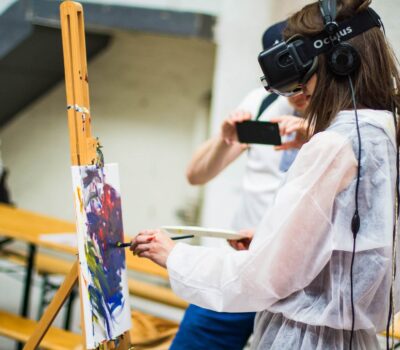

Following up from the honour of being selected every year in Huffington Posts Top 12 Global Education Blogs from 2014-2017 I have been chosen again in this amazing group and for 2018 will be contributing to Huffington Post’s Education blog once a month. This month we look at the following highly controversial topic “To what extent do you believe the literacy skills required for a new world will be more or less the same as they were before? Will new literate practices need to be generated and does that mean that new literacies be required? If so, what do you think these new literacies will be and how can they be learned?” – here is my response:

As an educator and now a parent, I know the importance of strong literacy skills which is a basic skill that the majority of ‘successful’ people inhabit. I am not going to define ‘success’ here but it is important to note the values we all place on skills such as literacy and numeracy.
Literacy is the ability to understand and evaluate meaning through reading, writing, listening, speaking, viewing and presenting. Let’s quickly categorize these literacy skills into those that are Receptive (Reading, Listening and Viewing) and Productive (Speaking, Writing and Presenting). Receptive is what you receive and how you make meaning while Productive is what you produce and how you create meaning.
Literacy skills need to continually expand and diversify because our rapidly changing social economic environment requires competence in a range of new communication forms and media.
The UNESCO Director-General Irina Bokova recently spoke on International Literacy Day in France and said “To be truly empowering, new technologies must stand on two pillars. First, they must be inclusive, bridging gaps, not deepening them. Second, they must be underpinned by respect for human rights and dignity. All this gives rise to new questions about the meaning of literacy today.”
Schools need to identify this and work on developing a strong understanding of pedagogy paired with the purposeful and authentic integration of technology to strategically build literate citizens of a new global landscape.
Ms. Bokova also added that “traditionally, literacy has been considered a set of reading, writing and counting skills. The digital world calls for new, higher-level, competences on top of these.” We have always prepared our students for life in the manufacturing economy but now we are focused on developing learners for the Fourth Industrial Revolution (click here to read more on this) where basic literacy skills are crucial but with added competencies. To me, these new competencies that help our learners achieve success in a constantly evolving landscape include a more focused energy on skills to explicitly teach and integrate problem-solving, creativity, collaboration, financial literacy, innovation and critical thinking into their curriculum.

Image Source: The Tech Advocate
To add some more specific skills to this list, in my opinion, one of the most important new literacies is coding. The ability to learn a ‘non-traditional’ language such as coding is going to be in our faces in the coming years and it is in our best interests to start explicitly teaching this and integrating it immediately in our schools. Computational Thinking has now been officially included in many curriculums globally and schools (such as mine in Singapore) are developing their own frameworks to authentically integrate these skills into their teaching and learning programs.
Another key skill that I am extremely passionate about is the ability to collaborate and communicate in an online world through social sharing. The incorporation of digital citizenship in schools emphasizes the importance of doing this correctly. Schools are recognizing the importance of connecting their students to experts outside of the classroom. As we become more connected the power of learning needs to be slowly transferred from the hands of the teacher to the hands of the learner.
While the list of new and developing literacies will continue to develop as the education landscape goes through rapid changes, core literacy skills will not adjust and change so quickly. Instead, we will be looking at how these new literacies fit within current school practices and how educators can adapt and engage with new technologies to add value to student learning. Don’t sit back and let technology drive you, jump ahead and move forward using technology as the driver.
For more great content from Craig Kemp visit: http://mrkempnz.com